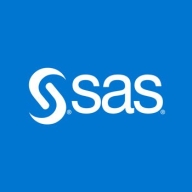

SSIS and SAS Data Management compete in data integration and management. SAS Data Management may have an upper hand due to its comprehensive features, while SSIS is more cost-effective and well-supported.
Features: SSIS integrates seamlessly with Microsoft tools and supports scalability and real-time processing. It has strong ETL capabilities, making it ideal for large data volumes. SAS Data Management offers advanced data quality and data governance features, as well as superior analytics, which exceed the ETL focus of SSIS. SAS is viewed as more suitable for complex data environments with its robust analytical tools.
Room for Improvement: SSIS could improve its analytical capabilities and expand its data source support beyond Microsoft environments. Enhancing its data quality features would also benefit users. Conversely, SAS Data Management can simplify its deployment process and improve cost efficiency. Offering better integration with non-SAS platforms would also be advantageous.
Ease of Deployment and Customer Service: SSIS benefits from easy integration within Microsoft's ecosystem, making it straightforward to install and use. It provides good customer support. SAS Data Management, although potentially more complex to deploy, offers excellent support services and thorough documentation. The distinction lies in SSIS’s straightforward deployment versus SAS’s thorough support experience.
Pricing and ROI: SSIS is generally more affordable with lower initial costs, appealing to budget-conscious organizations. It provides a good ROI within Microsoft environments. SAS Data Management, though more expensive, is seen as worth the investment by some due to its extensive feature set and capacity to handle complex datasets, weighing higher initial cost against long-term value.
Using SSIS has proven cost-effective as there are no additional fees outside the SQL Server license, and it significantly enhances data management efficiency.
It processes large volumes of data quickly.
There is significant room for improvement, especially with regard to using a hybrid approach that involves both CAS and persistent storage.
SSIS has a difficult learning curve when dealing with complex transformations.
From my experience, SAS Data Management is an expensive tool.
Utilizing SSIS involves no extra charges beyond the SQL Server license.
SAS Data Management stands out because of its data standardization, transformation, and verification capabilities.
One of the best aspects of SSIS is that it is built into Microsoft SQL Server, so there are no additional costs involved.


Every decision, every business move, every successful customer interaction - they all come down to high-quality, well-integrated data. If you don't have it, you don't win. SAS Data Management is an industry-leading solution built on a data quality platform that helps you improve, integrate and govern your data.
SSIS is a versatile tool for data integration tasks like ETL processes, data migration, and real-time data processing. Users appreciate its ease of use, data transformation tools, scheduling capabilities, and extensive connectivity options. It enhances productivity and efficiency within organizations by streamlining data-related processes and improving data quality and consistency.
We monitor all Data Integration reviews to prevent fraudulent reviews and keep review quality high. We do not post reviews by company employees or direct competitors. We validate each review for authenticity via cross-reference with LinkedIn, and personal follow-up with the reviewer when necessary.